Anxiety & Depressive Disorders
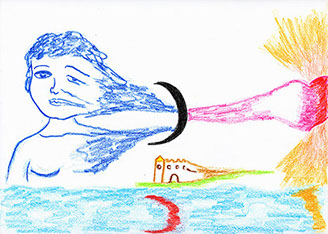

Home | Areas of Application
Depression and anxiety are two different disorders, but people with depression often experience symptoms similar to an anxiety disorder, such as nervousness, irritability, sleep and concentration problems. However, each disorder has its own causes as well as emotional and behavioral symptoms.
Situations such as the loss of a loved one, being fired, divorce or other difficult situations can make a person feel sad, lonely and lost. These feelings are normal reactions to difficult situations in our lives. However, the emotional response to these situations are different from depression, which is a psychiatric disorder whose manifestations are much more severe and tends to persist. Clinical depression more commonly manifests in women than in men.
Everyone experiences episodes of anxiety, before passing exams, in the event of a health problem or accident, or when faced with a major challenge in our lives. Anxiety becomes pathological and harmful when the anxious feeling begins to hinder our daily activities, prevents us from making decisions and taking action. Negative mental ruminations become permanent and painful and alter our personal, family, or professional lives.
Anxiety disorder is characterized by excessive nervousness, fears, apprehension and uncontrollable worry and includes panic attacks, phobias, as well as obsessive-compulsive disorders.
CAP offers services to facilitate change in children, adolescents, adults and seniors suffering from depression or anxiety.
Men have difficulty recognizing that they are depressed and tend not to seek help.
For women, depression is more likely to be manifested by sadness, feelings of worthlessness and guilt.
In young children, depression will manifest itself as refusal to go to school, anxious separation or fear of their parents dying.
Depressed teenagers tend to be irritable, sulky and have problems in school. They also often suffer from anxiety with associated pathologies such as eating disorders, addiction, or social phobias.
With the elderly, depression can manifest itself more subtly, as they tend not to admit their feelings of sadness or grief. Physical illnesses and isolation from community, common in this population, also contribute to or cause depression.
Lucienne is hospitalized for depressive syndrome with adynamia (very intense fatigue with general exhaustion of the body). She has suffered many traumas since childhood (physical and verbal abuse) which she has never really sought treatment for and is entering a phase of her life where she questions everything.
CAP allowed her to gently explore the painful areas of her past that resulted in a profound renewal for life and a resolution from her depressive state. She regained her enery and a new life purpose after she was discharged from the hospital.
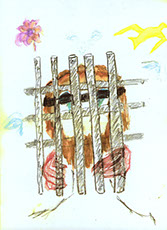
Drawing #1
with music
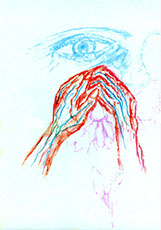
Drawing #2
with music
"I was able to express myself outside of words, outside of others, to yell, to scream, to be happy and to feel all of that. I was able to speak to myself in total security (even if it was painful)"
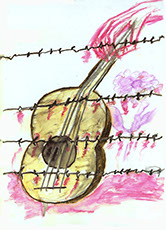
Drawing #3
with music
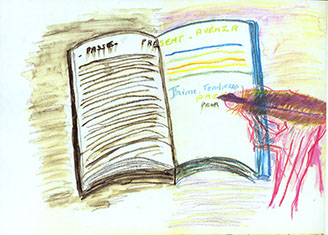
Drawing #4
with music
"Life is an open book that man writes. My life is an open book about the future... a lot of blank pages to fill, other than with black ink. I want to live! in color!"Paragraph
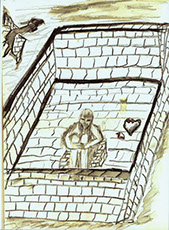
Drawing #5
with music
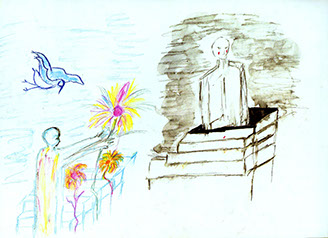
Drawing #6
with music
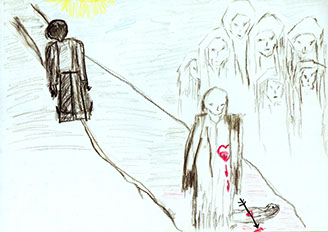
Drawing #7
with music
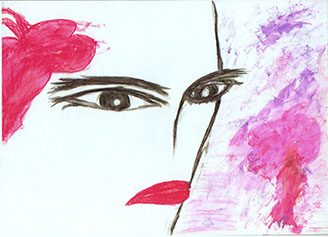
Drawing #8
with music
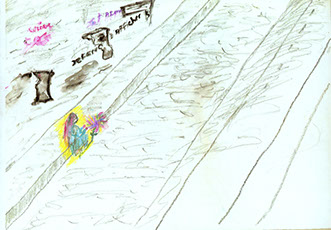
Drawing #9
with music
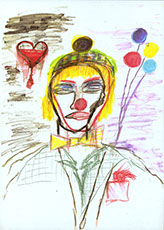
Drawing #10
with music
Marjory is a very lively woman with a full social life. She appears to be an extrovert, but since childhood she has struggled with strong unresolved internal conflict that she has been unable to talk about. She suffers from insomnia with nighttime anxiety and has a worm, maggot and other insect phobia. This phobia sometimes triggers a panic attack.
She has seen several psychotherapists that were helpful, but their therapy did not offer a lasting change. When she began CAP, she felt that the program was specifically designed for her. She expressed that it is only when she began therapy with CAP that she developed a feeling of resolution.
Without consciously realized it, her panic attacks have decreased significantly as well as her recurring nightmares. She has discovered a new inner strength that has helped her to make healthier choices in her life.
Marjory not only realized that she solved her phobia problem, but she started to experience many dreams and insights that prompt her to begin a deeper exploration of her inner life and to define her real purpose.
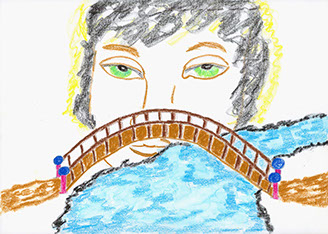
Reference Drawing #1
without music
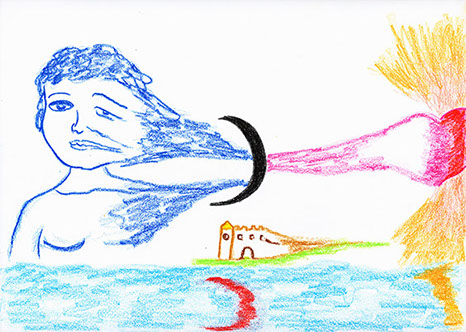
Drawing #1
with music
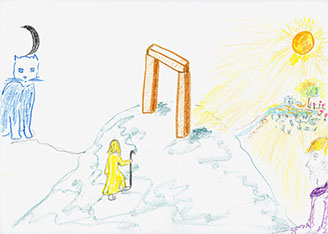
Drawing #2
with music
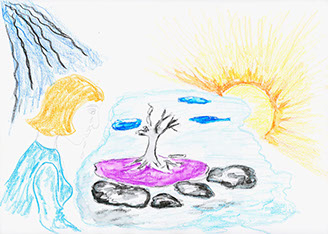
Drawing #3
with music
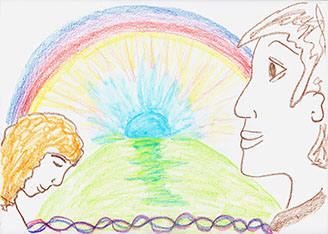
Drawing #4
with music
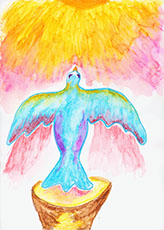
Drawing #5
with music
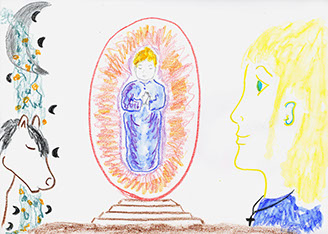
Drawing #6
with music
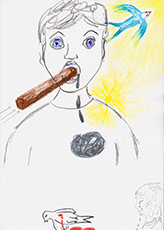
Drawing #7
with music
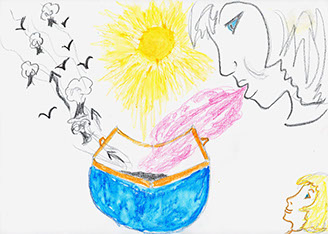
Drawing #8
with music
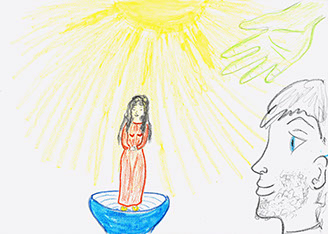
Drawing #9
with music
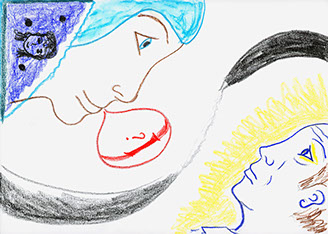
Drawing #10
with music
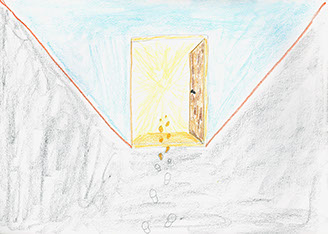
Reference Drawing #2
without music